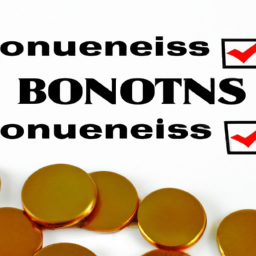
Incentives and Bonuses: Motivating Employees to Excel
Introduction
In today’s competitive business landscape, companies strive to attract and retain top talent. One effective way to motivate employees and drive their performance is through incentives and bonuses. These rewards not only encourage individuals to go the extra mile but also foster a positive work environment and enhance overall productivity. In this article, we will explore the benefits of incentives and bonuses and discuss how they can be effectively implemented.
The Power of Incentives
Incentives play a crucial role in inspiring employees to perform at their best. By offering rewards for exceptional performance, companies can create a sense of healthy competition among employees, driving them to exceed expectations. Incentives can take various forms, such as monetary bonuses, gift cards, extra vacation days, or even recognition programs. The key is to align the incentives with the goals and values of the organization, ensuring they are meaningful and desirable to employees.
The Benefits of Bonuses
Bonuses, often tied to individual or team performance, provide a tangible reward for outstanding achievements. They can serve as a powerful tool for recognizing and appreciating employees’ hard work and dedication. Bonuses not only motivate employees to strive for excellence but also enhance job satisfaction and loyalty. When employees feel valued and rewarded for their contributions, they are more likely to remain engaged and committed to the company’s success.
Implementing Incentive Programs
To establish effective incentive programs, companies should follow a structured approach. Here are some steps to consider:
1. Set Clear Goals: Clearly define the objectives and targets that employees should strive to achieve. Goals should be specific, measurable, attainable, relevant, and time-bound (SMART).
2. Tailor Incentives to Individuals: Different employees may be motivated by different incentives. Take the time to understand what drives each employee and customize rewards accordingly. This personalization increases the likelihood of success.
3. Regularly Communicate Expectations: Ensure that employees are aware of the performance expectations and how they can earn incentives. Regularly communicate goals, progress, and any changes to the incentive program to keep employees informed and motivated.
4. Provide Timely Feedback: Regularly provide feedback and recognize employees’ achievements. Constructive feedback helps individuals understand where they stand and how they can improve, while recognition boosts morale and motivates them to continue excelling.
5. Evaluate and Adjust: Continuously assess the effectiveness of the incentive program and make adjustments as needed. Solicit feedback from employees to understand their perceptions and make improvements accordingly.
Conclusion
Incentives and bonuses are powerful tools that can significantly impact employee motivation and productivity. By implementing well-designed programs that align with employees’ goals and values, companies can create an environment where individuals are driven to excel. Remember, effective incentives go beyond monetary rewards and encompass recognition, personalization, and clear communication. By investing in these programs, companies can foster a culture of excellence and reap the benefits of a highly motivated workforce.